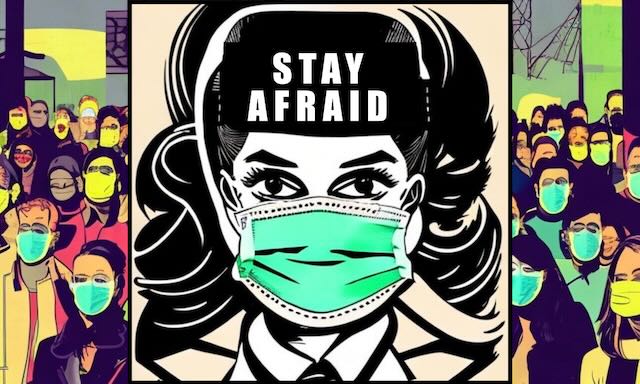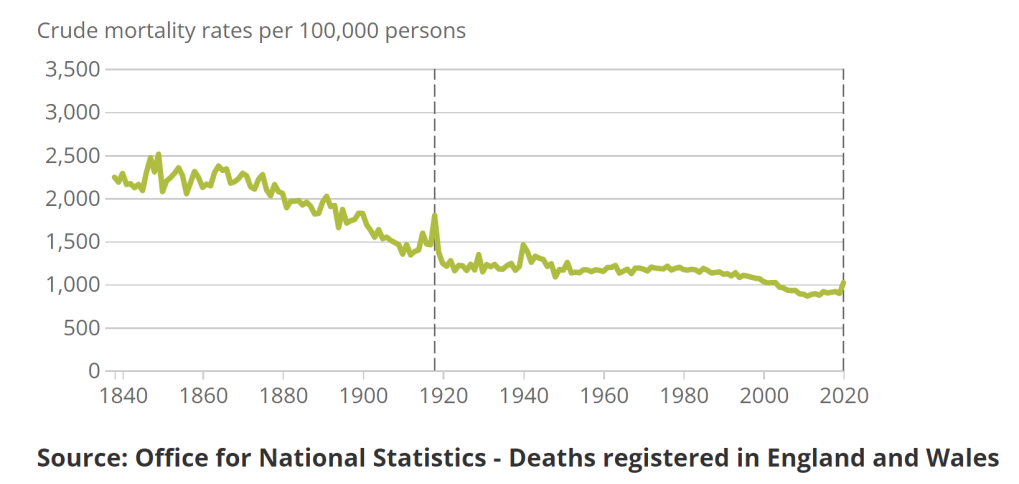
Words are powerful: handle with care
Covid-19 has been described as a global pandemic but does this title give it a severity and indeed fear factor way beyond its actual impact?
The word pandemic used to have a very specific meaning. It was used to describe a scenario where there was extensive incapacitation of key workers and large numbers of deaths, including young people. A genuine pandemic is not something that would have needed billions of dollars in advertising for people to even notice and fear. Using this long-established definition of the word, we conclude that there was in fact no global pandemic in 2020. The word was deliberately misapplied and weaponised against an unsuspecting public. Let us be clear, this article is not questioning the existence of a virus SARS-CoV-2 or an illness named Covid-19, but even the choice of ‘SARS’ (Severe Acquired Respiratory Syndrome) as the name for this coronavirus was already setting the scene for systematic fear-mongering.
The notion of a ‘pandemic’ was relentlessly promulgated through mainstream media to ramp up fear in the population, to help enforce unprecedented lockdowns and other extremely harmful policies (e.g school closures and universal mask wearing) and to push through Emergency Use Authorisations of novel technology mRNA and viral vector DNA products.
This would not have been possible were it not for three false premises that covid was:
- novel;
- extremely lethal; and
- unprecedented.
It was none of these things. It was no more novel than numerous other viruses which emerge each year in terms of the ability to be recognised by our immune systems. It was no more lethal than bad influenza viruses of the past and was less lethal than seasonal influenza for the young. Intensive care stays were longer than have been observed with flu, though whether that was due to a virus directly or caused by our changed response to how we treated respiratory infections is unclear. Overall it was a treatable, seasonal respiratory virus mostly affecting the old and infirm.
HART has written previously on how similar the mortality was to the bad influenza winter of the year 2000. The mortality data for 2020 is unremarkable globally when compared to previous influenza seasons except perhaps in New York City and Northern Italy. In both of these outliers, the data emerging is raising uncomfortable questions about the relative contribution of the virus versus the impact of policy-related responses when considering the extraordinary number of deaths reported. In spite of these outliers, global mortality data shows no evidence of a global pandemic. It could be argued that a once in every 20 year event should not be minimised, but nor does it justify an all of society emergency response or the institution of a permanent biosecurity surveillance state.

Figure 1 showing ONS crude mortality rates since 1840
Without the highly flawed PCR case data and draconian global restrictions on doctors’ freedom to treat their patients as they saw fit, there would be nothing particularly notable about this year. Outside of PCR driven data, a small rise in the number of calls to ambulances for breathing difficulties was observed, though it is possible that hysteria and fear may be responsible for at least part of this. We might have noticed an unusually late spike in influenza-like illness but not much more. Mortality-wise, it would appear as a mid-range ‘bad flu’ year. It is worth reading the work of Professor Denis Rancourt on mortality data, who has been pointing out this inconvenient truth since early 2021.1,2
Interestingly, the WHO quietly altered the accepted definition of ‘pandemic’ in 2009, just before the so-called H1N1 ‘pandemic’. The rushed-to-market Pandemrix vaccine which was pushed hard in the face of the imaginary ‘pandemic’ was subsequently pulled from the market due to life-changing side effects (often in children), a signal picked first up in Finland but later found elsewhere.
In essence, they used exactly the same playbook in 2020, but seemed to have ironed out some of the ‘problems’ encountered the first time round. Vicious behavioural psychology tactics were the main tools used to ‘correct’ these ‘problems’. Shaming people into believing they may ‘kill granny’ was a master-stroke. They used guilt, shame and the threat of ostracism, these being some of the most powerful drivers of human behaviour. There was even an identical cast of characters; Fauci, Drosten and Gates, all reporting for duty, aided and abetted by the bought and paid for media machine working on 24 hour overdrive.
In 2003, an influenza pandemic was defined as follows:
“An influenza pandemic occurs when a new influenza virus appears against which the human population has no immunity, resulting in several simultaneous epidemics worldwide with enormous numbers of deaths and illness.”
In 2009, the WHO decided, in their infinite wisdom, to get rid of the words “enormous numbers of deaths and illness.” from the definition. You would think deaths and serious illness were the only meaningful characteristics of a ‘deadly pandemic’.
To successfully fight against the globalist mission creep of tyrannical public health measures, we must collectively stop stoking the ‘deadly pandemic’ fire. If we continue to allow this falsehood to embed in public consciousness, all of the unethical horrors enacted will simply be repeated for the next non-pandemic-pandemic.
Without the requirement for excess deaths and widespread serious illness, malevolent profit-driven interests can simply will a ‘pandemic’ into existence on finding any new mutation amongst the global virus population. A strategy to force countries to invest heavily in searching for genetic anomalies will fuel the pandemic creation industry. Once one is found, the response can be fuelled by using fraudulent test data and media advertising, as they did very successfully in 2020. We cannot allow this to happen again and must therefore reclaim the word ‘pandemic’ to ensure it is only applied in the correct way.
We expect a reflexive objection to this article from some quarters on the basis that the case has not been adequately argued that covid had minimal impact on overall mortality in 2020. This fact is irrelevant when challenging the terrifyingly inappropriate global response. The world’s population was sold a serious lethal deadly pandemic which – we were told – necessitated the reordering of society. The ‘new normal‘ as it was affectionately called by so many perfectly in-sync global leaders. In the event, we did not have a serious lethal deadly pandemic, and what has happened (and continues to happen) is based on a lie. Arguing about whether or not some bits of the lie might have a modicum of truth in them is a distraction from much bigger questions which need addressing.
